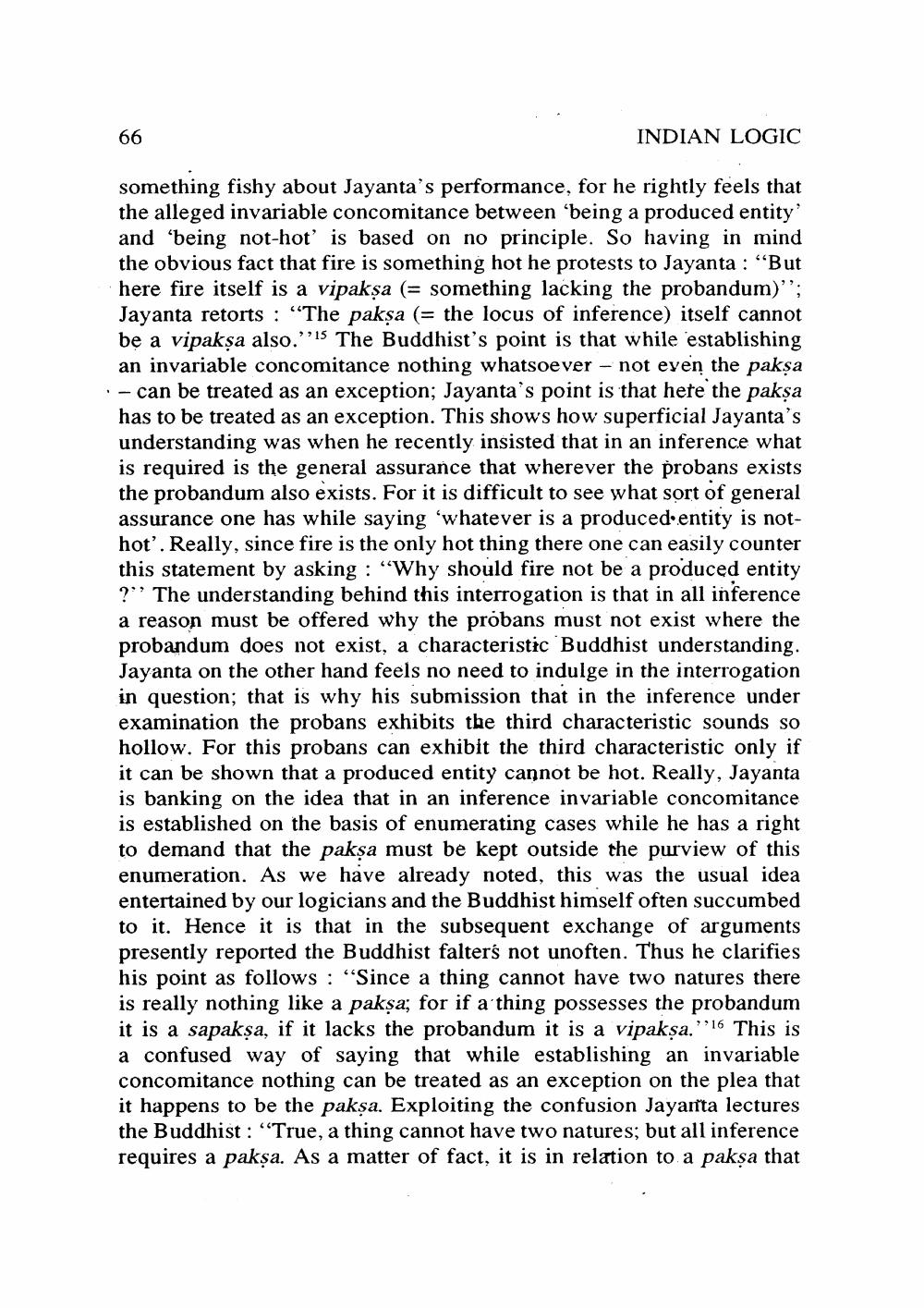________________
66
INDIAN LOGIC
something fishy about Jayanta's performance, for he rightly feels that the alleged invariable concomitance between 'being a produced entity and being not-hot' is based on no principle. So having in mind the obvious fact that fire is something hot he protests to Jayanta : “But here fire itself is a vipaksa (= something lacking the probandum)''; Jayanta retorts: "The paksa (= the locus of inference) itself cannot be a vipaksa also."'15 The Buddhist's point is that while establishing
an invariable concomitance nothing whatsoever - not even the paksa :- can be treated as an exception; Jayanta's point is that here the paksa has to be treated as an exception. This shows how superficial Jayanta's understanding was when he recently insisted that in an inference what is required is the general assurance that wherever the probans exists the probandum also exists. For it is difficult to see what sort of general assurance one has while saying 'whatever is a produced.entity is nothot'. Really, since fire is the only hot thing there one can easily counter this statement by asking : “Why should fire not be a produced entity ?" The understanding behind this interrogation is that in all inference a reason must be offered why the probans must not exist where the probandum does not exist, a characteristic Buddhist understanding. Jayanta on the other hand feels no need to indulge in the interrogation in question; that is why his submission that in the inference under examination the probans exhibits the third characteristic sounds so hollow. For this probans can exhibit the third characteristic only if it can be shown that a produced entity cannot be hot. Really, Jayanta is banking on the idea that in an inference invariable concomitance is established on the basis of enumerating cases while he has a right to demand that the paksa must be kept outside the purview of this enumeration. As we have already noted, this was the usual idea entertained by our logicians and the Buddhist himself often succumbed to it. Hence it is that in the subsequent exchange of arguments presently reported the Buddhist falterś not unoften. Thus he clarifies his point as follows: "Since a thing cannot have two natures there is really nothing like a paksa; for if a thing possesses the probandum it is a sapaksa, if it lacks the probandum it is a vipaksa.'16 This is a confused way of saying that while establishing an invariable concomitance nothing can be treated as an exception on the plea that it happens to be the pakşa. Exploiting the confusion Jayarsta lectures the Buddhist : “True, a thing cannot have two natures; but all inference requires a paksa. As a matter of fact, it is in relation to a paksa that




